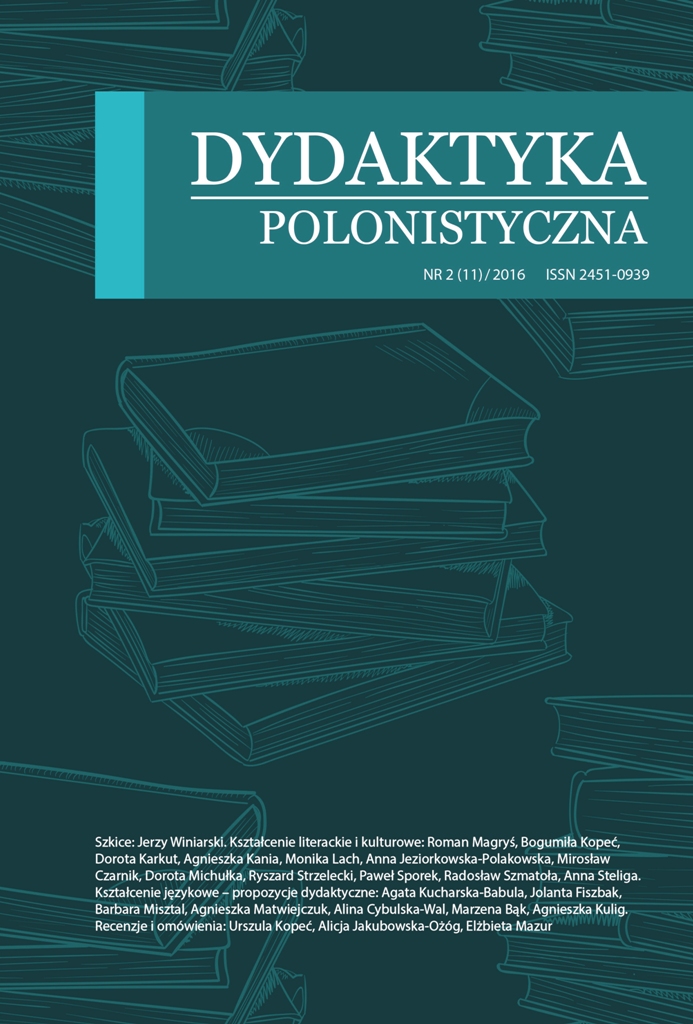Untapped potential In Desert and Wilderness by Henryk Sienkiewicz in shaping national and cultural identity
Abstract
In the article it is addressed the issue of the presence of In Desert and Wilderness by Henryk Sienkiewicz in the canon of books important for Polish culture. Currently the tendency to criticize the creation of the world and heroes in that novel can be observed, with particular attention being paid to the colonial views of the author, and accusing him of unequal treatment of race and gender. That, however, can be regarded as biased action and is worth verifing by other qualities of the novel. Emphasizing the special role In Desert and Wilderness in Polish literature for children, the author draws attention to the almost unnoticed in the school didactics identity-shaping potential of the novel written a hundred years ago. Noticing these passages that speak of Poland, allows students to prepare for the reception of the more difficult works about Polish fate and character of Poles. Moreover, in the second decade of the twenty-first century there is a need to discuss the previously obligatory topics discussed in connection with this reading and focus on those of its qualities which respond to the current cultural and social reality. For example, focusing on the image of African wildlife can be replaced by an analysis of the positive pattern of a young man presented in the book.Downloads
Published
2016-12-15
How to Cite
Kania, A. (2016). Untapped potential In Desert and Wilderness by Henryk Sienkiewicz
in shaping national and cultural identity. Dydaktyka Polonistyczna, 11(2), 54–63. Retrieved from https://journals.ur.edu.pl/dydpol/article/view/5403
Issue
Section
KSZTAŁCENIE LITERACKIE I KULTUROWE


